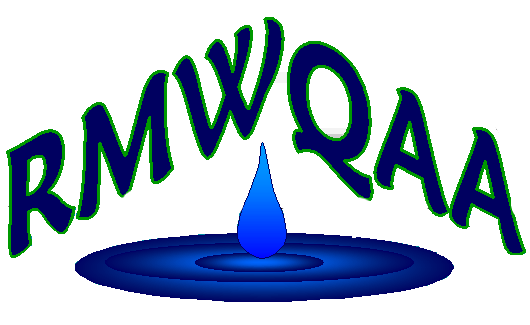Does anyone besides me feel like there are new regulations flying at you and trying to keep up is just HARD? I thought maybe a summary of some of those I have on the radar might help someone.
1. Lead or the LCRR and LCRI
a. Acronym Definitions: Lead and Copper Rule Revisions, Lead and Copper Rule Improvements, GRR – Galvanized Requiring Replacement
b. The most important thing about complying with this rule right now is that systems must complete their inventory by October 16, 2024. However, the word “complete” is a misnomer. I have been using the word “refining” rather than completing. If you can report that you have no lead that’s awesome and you should go ahead and get that form submitted to the state. If you have or suspect or have no idea if you have lead then everything is considered an “unknown”. You can report your lead, galvanized requiring replacement and unknowns and keep working on identifying the unknowns. The trick will be, once the LCRI is in effect (on Oct 16th), the unknowns get counted in your placement requirement which will be 10% of your inventory. We will need to report another inventory number sometime after 2027 so there’s time to refine your inventory. Once you do the report to the state you have to notify everyone with lead, GRR and unknowns within 30 days.
c. After the rule in in effect, everyone will have to sample schools and daycares – even if you don’t have lead. The state did some sampling and we probably won’t have to re-sample those schools. A good starting point would be to build our list of schools, but I wouldn’t sample just yet because daycares and schools could change before LCRI takes effect after 2027.
d. There’s tons more to this rule, if you have questions, call! The state is also able to help!
2. PFAS
a. I heard recently the final rule should be out by April 8th.
b. This is the draft proposed to regulate PFOS and PFOA at 4 PPT and there are four other compounds which will use a new concept for drinking water of how the Hazard Index is calculated.
c. The drinking water rule could have ramifications for discharge permits. I expect they will use the drinking water MCLs to decide permit limits for discharges.
3. Dredge and Fill
a. This work seeks to protect the waters that the current WOTUS ruling does not. There are two bills working through the legislature and if you want more information, let me know.
- HB24-1379 - this bill will require CDPHE to set up the entire program of 404 permitting.
- SB24-127 - this bill sets up the program in the department of natural resources and will provide protection for the gap waters (ephemeral streams and wetlands).
4. COG641000 Water Treatment Plant Wastewater Discharge Permit Renewal
- If you have a general permit to discharge from your treatment plant, it might be changing. This does not impact individual permits. I do not know where the state landed on this as it has been a while since the meetings were held and the meeting this week is said to be the final stakeholder meeting.
a. The last stakeholder meeting was Apr 2nd and I can give people an overview later if they are interested. As I am writing this, the meeting has not been held.
5. Reg 100 Mandatory Regulatory Training (MRT) and TU matrix
a. There is supposed to be a stakeholder process to update the TU matrix which could impact operators holding certifications throughout the state. I have not seen any announcements but, please get involved.
b. A workgroup has been working to refine the MRT class. The Reg 100 board will have a stakeholder process to finish this work. Operators are encouraged to represent themselves in this process.
Sherry Scaggiari is the Environmental Compliance Principal at the City of Aurora. Sherry has a chemistry degree from CSU and made her start in environmental contract labs over 30 years ago. She has worked for the city of Aurora for 16 years. She is responsible for compliance for Aurora Water including supervising the MS4 inspections group, Environmental compliance and the Quality Control Laboratory.
 Welcome to the
RMWQAA Website!
Welcome to the
RMWQAA Website!  Welcome to the
RMWQAA Website!
Welcome to the
RMWQAA Website!